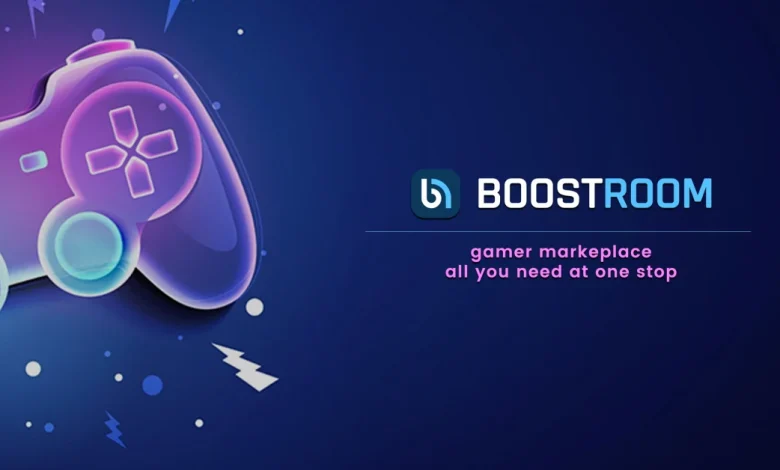The Environmental Impact of Digital Goods in Gamer Marketplaces

The rise of digital goods has transformed the way gamers buy and sell in-game items, cosmetics, and assets. With the increasing popularity of gamer marketplaces, understanding the environmental consequences of these digital transactions has become essential. While digital goods don’t take up physical space, they still have an environmental impact. This article delves into how these digital exchanges affect the environment and what players and sellers can do to reduce their carbon footprint.
The Digital Economy and Its Carbon Footprint
The digital economy has revolutionized various sectors, including gaming. However, behind the convenience of instant transactions lies an often unseen environmental cost. The process of buying and selling digital goods, such as skins, upgrades, and other in-game items, involves the consumption of energy.
Data Centers and Energy Consumption
When players purchase digital items in a marketplace for gamers, the transaction data is stored in data centers, which require a significant amount of electricity to function. According to reports, data centers are responsible for a considerable share of the world’s energy consumption, and the majority of this power comes from non-renewable sources. Even though these centers are essential for maintaining online marketplaces, they contribute to the global carbon footprint.
The Role of Digital Goods in Increased Energy Demand
Each transaction in a gamer marketplace typically requires server maintenance, the processing of data, and storage, all of which increase energy demand. These digital transactions might seem insignificant on an individual level, but on a global scale, the sheer volume of digital activity can have a notable impact on energy consumption. The more games and digital goods a player purchases, the more energy is consumed behind the scenes, which directly affects the environment.
The Environmental Cost of Gaming
The gaming industry, as a whole, has experienced significant growth, and as a result, the demand for digital goods in marketplaces for gamers has skyrocketed. While these digital goods don’t require the same resources as physical products, their indirect environmental impact cannot be ignored.
One of the primary concerns is the energy consumption associated with the creation, distribution, and storage of digital goods. While physical products like consoles and cartridges have their own environmental costs, digital goods have a more complex, yet just as impactful, effect on the environment.
In addition to data centers, players may not realize that their gaming consoles, PCs, and devices require electricity to run these games, which in turn increases their energy consumption.
Sustainability Efforts in the Gaming Industry
Some gamer marketplaces are beginning to acknowledge the environmental impact of their operations and are taking steps to reduce it. Companies and platforms are exploring ways to make digital transactions and goods more energy-efficient.
Boostroom’s Role in Sustainable Gaming Practices
Platforms like Boostroom can play a pivotal role in promoting sustainability within the gaming industry. By adopting energy-efficient systems, reducing unnecessary data storage, and supporting digital-only goods, these platforms can help mitigate some of the environmental impacts.
For instance, promoting digital products that don’t require physical manufacturing processes is one step toward reducing waste. By encouraging the trade of items that are purely digital and don’t rely on physical shipping or production, platforms can contribute to the reduction of carbon emissions.
Reducing the Environmental Impact of Digital Goods: What Can Sellers and Buyers Do?
Both sellers and buyers in gamer marketplaces can take simple yet effective steps to reduce their carbon footprint.
For Sellers
- Consolidate Transactions: Instead of multiple small transactions, sellers can offer bundled deals or allow buyers to purchase multiple items in a single transaction. This reduces the frequency of server interactions and minimizes energy consumption.
- Promote Digital-Only Goods: Sellers can prioritize items that are entirely digital, eliminating the need for physical storage or shipping. This reduces waste and environmental harm.
- Encourage Eco-Friendly Practices: Sellers can integrate environmentally friendly practices into their operations by reducing unnecessary packaging (in case of merchandise), promoting energy-efficient devices, and supporting platforms that prioritize sustainability.
For Buyers
- Be Mindful of Transactions: Players can avoid excessive buying and limit unnecessary transactions. Reducing impulsive purchases will lessen the strain on servers and data centers.
- Support Sustainable Sellers: Buyers can choose to support sellers who make efforts to reduce their carbon footprint. This includes those who operate on eco-friendly platforms or use sustainable practices.
- Reduce Digital Clutter: Gamers should be mindful of keeping their digital inventories organized. Too many unnecessary in-game items can increase the strain on digital storage systems, contributing to higher energy consumption.
- Opt for Energy-Efficient Devices: One of the easiest steps players can take is to use energy-efficient gaming devices. Consoles and gaming PCs that consume less power help reduce the overall energy demand for gaming.
The Road Ahead
As the world becomes more conscious of environmental issues, the gaming industry must follow suit. While digital goods are an integral part of modern gaming, there is still much work to be done in ensuring these transactions don’t come at the expense of the environment. By implementing more energy-efficient technologies, promoting sustainable goods, and encouraging responsible consumption, the gaming community can play a role in reducing the environmental impact.
Conclusion
The growing popularity of gamer marketplaces has undoubtedly reshaped the gaming industry, offering players a chance to buy, sell, and trade digital goods. However, with this convenience comes the responsibility to recognize the environmental impact of digital transactions. By being mindful of how we buy and sell in-game items, supporting sustainable platforms like Boostroom, and embracing eco-friendly practices, both players and sellers can help minimize their carbon footprint. Ultimately, by fostering an eco-conscious gaming culture, we can contribute to a healthier planet while still enjoying the virtual worlds we love.









